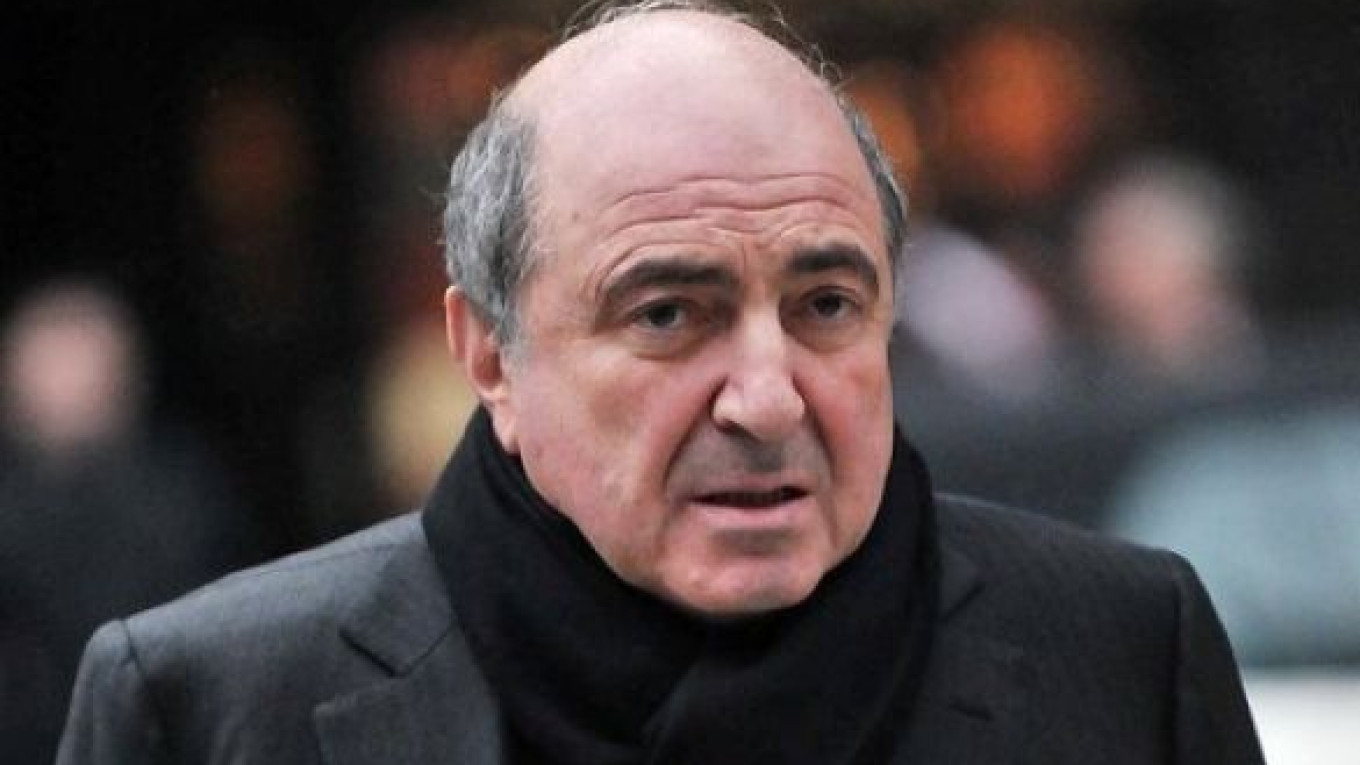Boris Berezovsky, the self-exiled tycoon and former powerful Kremlin insider who helped President Vladimir Putin gain power, has died outside London, according to relatives and acquaintances. He was 67.
The circumstances of his death were unclear, and neither British nor Russian authorities had confirmed it as of late Saturday. The news of his death apparently came first from his son-in-law, Yegor Schuppe, who wrote on his Facebook page late Saturday: "Boris Berezovsky has died."
Police in the British county of Berkshire said they had begun an investigation into the death of a 67-year-old man who died in a home in the village of Ascot, RIA-Novosti reported. They did not confirm that the man was Berezovsky and said the cause of death was unknown.
A controversial businessman with a background as a math professor, Berezovsky was once dubbed "the godfather of the Kremlin" by Forbes investigative journalist Pavel Klebnikov.
He was best known for helping Putin attain power, though he later broke with the president and went to live in London, where he received political refugee status.?
Putin spokesman Dmitry Peskov told Rossia-24 television on Saturday that Berezovsky had written a letter to Putin two months ago saying he had "committed many mistakes" and asked him for forgiveness and help in returning to Russia, Interfax reported.?
Peskov said he was unaware of any reaction by Putin to the news of Berezovsky's death.?
Acquaintances of the former tycoon gave conflicting reports concerning his death late Saturday. An unidentified Berezovsky acquaintance told RIA-Novosti that he died of a heart attack in his home outside London, while Alexander Dobrovinsky, a well-known Russian lawyer who has a London office, said on Facebook that he had received a call from London and been told Berezovsky killed himself.?
Former Berezovsky business partner Demyan Kudryavtsev, who led the Kommersant publishing house until 2011, tweeted that Berezovsky had died at 11 a.m. London time and that there were no signs of a “violent death.”?
Berezovsky had lately been depressed and deeply in debt, according to Dobrovinsky, who said a mutual acquaintance told him Berezovsky recently asked for $5,000 to pay for a plane ticket, Kommersant reported.?
In the early 1990s, Berezovsky made his first money selling Lada cars through his Logovaz company and made a fortune in the oil business through Sibneft, which he co-founded with Kremlin-connected businessman Roman Abramovich. He later sold the company to Abramovich.?
Using his connections with the family of the late Boris Yeltsin, Berezovsky was able to gain political power in the mid 90s by becoming deputy head of the Security Council.?
After moving to London, he became an outspoken critic of Putin, accusing him of dismantling the democratic policies put in place by the Yeltsin government. In 2006, he called on Russians to remove the current regime by force.?
Once in self-exile and out of favor in the Kremlin, Berezovsky's fortune dwindled. In 2008, Forbes magazine put his wealth at $1.3 billion, but it is thought that he had lost much of that by this year, partly in a high-profile court battle with Abramovich, who he sued for billions of dollars. He lost the suit and was ordered to pay 35 million pounds ($53.3 million) of Abramovich's legal bills.?
Berezovsky had become the target of numerous criminal cases in Russia after he moved abroad, being accused of money laundering and various other offenses.?
Investigative Committee spokesman Vladmir Markin tweeted late Saturday that the open cases against Berezovsky could be dropped if Russian authorities received confirmation of his death from the British government and if Berezovsky's relatives did not object.
Correction: An earlier version of this article incorrectly stated Berezovsky's age as 68.
Related articles:
A Message from The Moscow Times:
Dear readers,
We are facing unprecedented challenges. Russia's Prosecutor General's Office has designated The Moscow Times as an "undesirable" organization, criminalizing our work and putting our staff at risk of prosecution. This follows our earlier unjust labeling as a "foreign agent."
These actions are direct attempts to silence independent journalism in Russia. The authorities claim our work "discredits the decisions of the Russian leadership." We see things differently: we strive to provide accurate, unbiased reporting on Russia.
We, the journalists of The Moscow Times, refuse to be silenced. But to continue our work, we need your help.
Your support, no matter how small, makes a world of difference. If you can, please support us monthly starting from just $2. It's quick to set up, and every contribution makes a significant impact.
By supporting The Moscow Times, you're defending open, independent journalism in the face of repression. Thank you for standing with us.
Remind me later.


